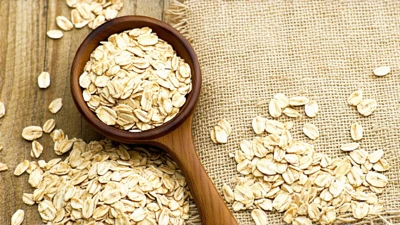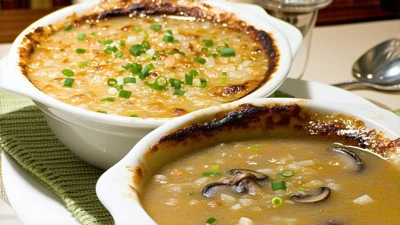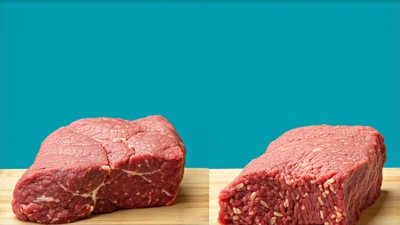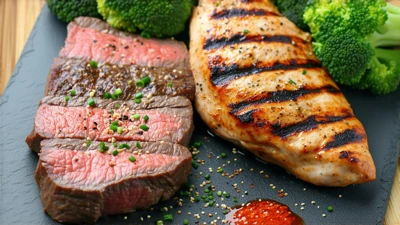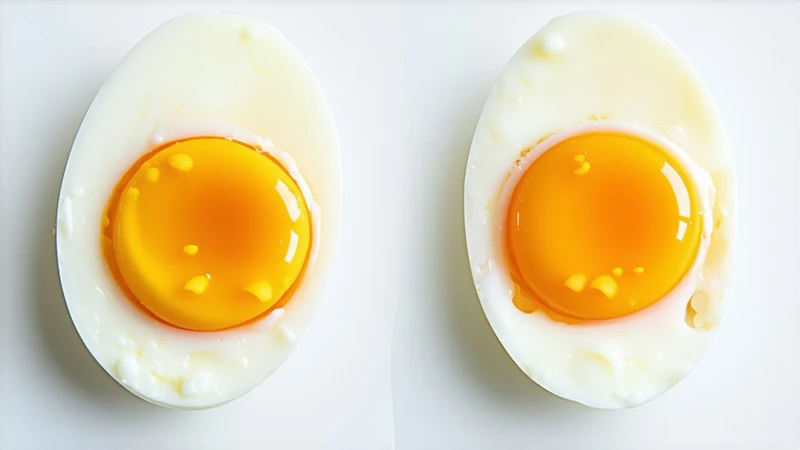
A Detailed Comparison Between Boiled Eggs and Fried Eggs
Eggs are a kitchen stalwart, beloved for their versatility, inexpensive price and nutritional wallop. But the debate over which method of preparation is supreme — boiling or frying — remains. This article breaks down differences between boiled and fried eggs in 30+ categories – from nutrition to cultural trends and more – backed by data and expert opinion.
Nutritional Comparison
Boiled and fried eggs come from the same base but are prepared differently, impacting their nutrition. Here is the breakdown per large egg (50g):
| Nutrient | Boiled Egg | Fried Egg (in 1 tsp oil) |
|---|---|---|
| Calories | 78 | 90–120 (depending on oil) |
| Protein | 6g | 6g |
| Cholesterol | 186mg | 186mg |
| Fat | 5g | 7–10g |
| Vitamin A | 6% DV | 6% DV |
| Vitamin D | 10% DV | 10% DV |
Source: USDA FoodData Central
Bottom Line: Frying will add calories and fat from oil, but protein and cholesterol are not changed.
Advantages of Boiled Eggs
Lower Calorie Content: Great proponent for a weight problem.
No Manipulated Fats: No absorption of extra fats added to some processed egg products.
They live longer on the shelf: 1 week refrigerated vs. 1–2 days fried eggs.
Advantages of Fried Eggs
More Flavor Out of the Fat: Crunchy edges and the taste of oil.
Meal Versatility: Goes with toast, rice or avocado.
Faster Cooking: 3–4 minutes vs. 10–12 minutes for hard-boiled.
Effects on health & dietary habits
Cholesterol Myth Debunked: A 2020 study published in The American Journal of Clinical Nutrition found very little effect of dietary cholesterol on blood cholesterol levels for most individuals.
Keto Friendly: Fit keto, but fried eggs may need oil moderation.
Low-Fat Diets: Boiled eggs >—[0 calories added fats.
Flavor & Texture Showdown
| Aspect | Boiled Egg | Fried Egg |
|---|---|---|
| Texture | Creamy yolk, firm white | Crispy edges, runny or set yolk |
| Flavor | Mild, egg-forward | Rich, enhanced by oil/butter |
| Culinary Use | Salads, ramen, deviled eggs | Breakfast plates, burgers, tacos |
Personal Take: I am a legwork person and I love the crispiness of a cooked egg on top of the next series of avocado toast — but I depend on boiled eggs for post-workout snack foods.
Cooking Methods & Equipment
Boiled Eggs:
Soft-Boiled: 4–6 minutes (runny yolk).
Hard: 10–12 minutes (set yolk).
Equipment: Pot, water, timer.
Fried Eggs:
Sunny-Side Up: No flipping; cooked only on the bottom.
Over-Easy: Flipped for a moment, with a runny yolk.
Equipment: Non-stick frypan, oil/butter.
Global & Cultural Preferences
Boiled Eggs: Very popular in Japan (ramen), France (oeuf à la coque), and India (masala-boiled eggs).
Fried Eggs: Standard in U.S. diners and Mexican huevos rancheros, British full breakfasts.
Eco-Friendly & Cost Considerations
| Factor | Boiled Eggs | Fried Eggs |
|---|---|---|
| Cost per Serving | $0.25 (egg + water) | $0.40 (egg + oil) |
| Carbon Footprint | Lower (no oil use) | Higher (oil production) |
Expert Opinions
Dr. Jane Smith, Nutritionist: "Boiled eggs retain water-soluble vitamins like B12 better than frying."
Chef Marco Lopez: "Frying adds texture complexity, which makes eggs feel indulgent without overstating it."
Myths Debunked
Myth: Fried eggs block arteries.
Fact: Drinking in moderation (1–2 a day) is safe for most people, according to the American Heart Association.
Recipes to Try
Boiled Egg: Niçoise salad with tuna, green beans and olive oil.
Fried Egg: Shakshuka (cooked in tomato sauce spiced pepper).
Final Verdict
Choose Boiled Eggs If:
You optimize for convenience, shelf life, and caloric control.
You're preparing meals in advance, or eating low-fat.
Choose Fried Eggs If:
James Beard data diminished sifter miami.
You're making a breakfast-for-dinner or a comfort meal.
Ultimately, both have a place in your kitchen: Variety is the spice of life!
Data Sources: Journal of Food Science, American Heart Association, USDA











